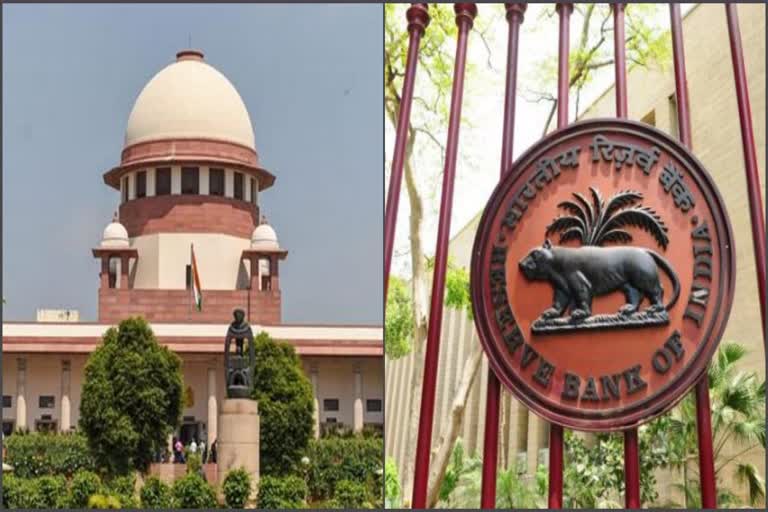New Delhi: The Reserve Bank of India(RBI) has informed the Supreme Court that it cannot extend the loan moratorium period beyond August 31, 2020, as it was a part of the immediate regulatory response to deal with the pandemic and extending it will have an adverse impact on the economy.
It has said that it will entail significant costs to the lenders, impact the behaviour of borrowers, vitiate credit discipline and small borrowers might end up bearing the burnt as their access to formal lending channels is critically dependent on credit culture.
"Further mere continuation of the temporary moratorium would not even be in the interest of borrowers. It may not be sufficient in addressing deeper cash flow problems of the borrowers and in fact exacerbate the repayment pressures for the borrowers. Therefore, a more durable solution was needed to rebalance the debt burden of viable borrowers, both businesses as well as individuals, relative to their cash flow generation abilities," added the affidavit.
The affidavit has come in response to a plea which sought a waiver of interest on interest during the loan moratorium period, moratorium be provided to all accounts instead of being at the discretion of lenders and extension of the moratorium period. For waiver of interest on interest, the government has already filed an affidavit agreeing to do so and bear the financial burden for it. For the rest of the prayers, additional affidavits were asked by the top court in its last hearing.
Also read:Thinking of getting your loan restructured? Here's what you should know
In case of the moratorium to be provided to all accounts, the RBI has submitted that the lending institutions are best placed to assess the cases, form their policies and therefore discretion has been given to them to decide the borrowers who can avail the moratorium benefits.
As per the Resolution Framework and Kamath committee( expert committee for the recommendation in the matter), accounts overdue for less than 30 days are only eligible for resolution under the framework. The petitioners had objected to it. RBI, however, made it clear in the affidavit that it was a conscious policy to "restrict the dispensation to only those accounts which were regular in making payments before the onset of the pandemic and which got impacted on account of COVID 19".
